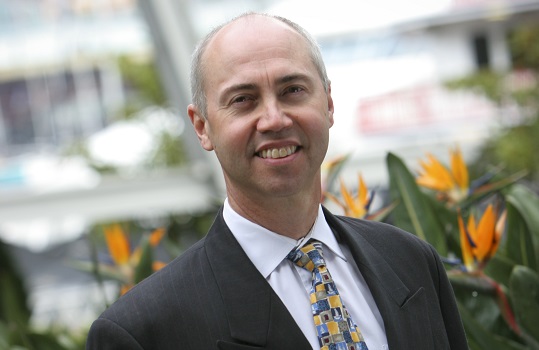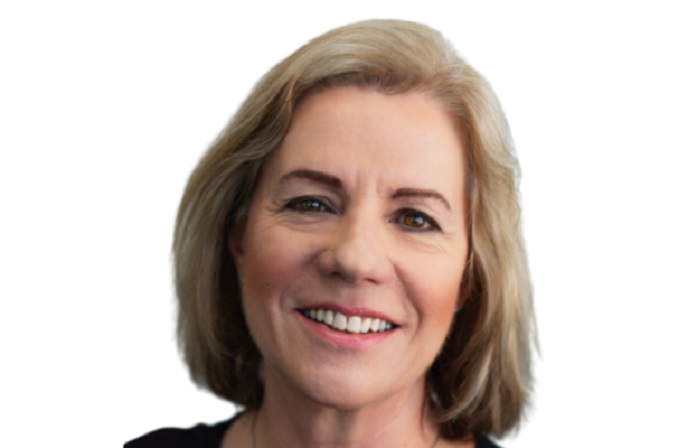
Virgin Money Australia’s General Manager for Digital, Technology & Operations speaks to FST Media about how they are working to improve their multi-channel offering to provide a seamless experience for customers.
FST Media: What are your IT priorities for the next 12 to 18 months?
Ritchie: Virgin Money Australia is a direct financial services business so our current focus is primarily on digital. Over the next 12 to 18 months, we will continue to invest in digital capabilities which enhance our customer experience, such as mobile, social, analytics and personalisation.
FST Media: What technology will be a game-changer in financial services over the next five years?
Ritchie: In the short term, I expect that mobile payments will be a significant game-changer. As well as the direct impact of migrating payments onto mobile phones, having a smart payment device will enable a range of value added services to be created. For example, matching mobile phone location to in-store payments for fraud prevention; dynamically providing loyalty offer redemption at point of purchase; and capturing invoice data and automated expense tracking for business expenditure. In the long term, I believe that artificial intelligence will disrupt all industries including financial services. Some of the potential applications include robo-advice, more sophisticated credit decisioning and more effective use of big data to personalise services.
FST Media: What new products or innovations can we expect to see at Virgin Money in the coming year, particularly in the home loans and transaction accounts space?
Ritchie: For Virgin Money to offer retail banking products, we need a banking partner. One of the key benefits from the acquisition of Virgin Money Australia by the Bank of Queensland is that it allows us to leverage the assets and capabilities of the broader group; this includes BOQ’s regulatory status, balance sheet and its operational, technology and risk management capabilities.
We have some exciting plans and we will be expanding our range of retail banking products in the next 12 months. Watch this space!
FST Media: How is Virgin Money working to improve its multi-channel offering to provide a seamless customer experience?
Ritchie: One of our core values at Virgin Money is heartfelt service. Our goal is to deliver exceptional customer experience, including ease of use and support for mobility. We are continuing to work with our product partners to improve our customer service experience and our joint teams have made excellent progress over the last 12-18 months. We are seeing proof of this in our Net Promoter Score and other key customer satisfaction measures.
FST Media: What are your thoughts on the rise of digital disruptors like Apple and Google, are they a threat or opportunity for traditional financial institutions?
Ritchie: Companies like Apple and Google have created opportunities such as search, mobility and apps but are also a threat. Apple for example, already has a large payments relationship with over 500 million customers. Currently, mobile payments looks like the area with the most significant overlap between traditional financial services players and the digital disruptors – services like Apple Pay and Google Wallet are clearly making incursions into the payments space.
In mobile payments, unlike existing payment systems such as credit cards and smart cards, there are multiple providers throughout the value chain and this includes the organisations providing handsets and mobile operating systems. Companies like Google and Apple are naturally positioned to participate in mobile payments and this gives them a beachhead into financial services.
The implications of this are difficult to foresee. I have been watching this space now for almost five years and it is still hard to predict how the competitive dynamics will evolve.
FST Media: How is Virgin Money harnessing the power of social media to engage with a growing Gen Y customer base?
Ritchie: Social media is an increasingly important arena particularly for younger customers. If you asked most customers ten years ago, they probably would not have foreseen social media becoming as significant as it is today.
At the moment, Virgin Money is using social media to share engaging and educational content, to provide customer support and to listen to what our customers are saying. This is still a rapidly developing area as demonstrated by recent developments such as the launch of Meerkat and Periscope which are live video streaming apps linked to social media. Ultimately, creating and sharing content to help our customers better manage their finances will be a key strategy for us.
FST Media: What is your most effective customer acquisition channel and why?
Ritchie: As you would expect for a direct business, most of our acquisition is sourced via digital channels, including organic and paid search, banner adverts and third party sites such as aggregators. Because of the increased cost of paid search, search engine optimisation is an ongoing area of focus. One of the characteristics of digital channels is that they are highly measurable. This enables us to track the relative performance of each source and make adjustments to maximise customer acquisition and cost effectiveness.
FST Media: How do you encourage a culture of innovation in your team?
Ritchie: Two of the core Virgin tenets are insatiable curiosity and smart disruption and this mindset helps to support a culture of innovation. Within my team, we regularly share ideas and make time for dedicated innovation sessions. The Virgin Money office environment also facilitates collaboration and an agile style of working. We even have a LEGO table which symbolises innovation in two ways: the creativity of building things out of LEGO; and the dramatic turnaround in the LEGO Group’s fortunes over the last decade driven by successfully harnessing innovation. We also try to leverage learnings from successful digital players outside of financial services.
FST Media: What advice would you give to aspiring technology chiefs?
Ritchie: I believe that it will be essential to develop leadership skills and a broad understanding of business as well as being an “expert” in technology. In my own case, I combined an undergraduate degree and early career in information technology with a post graduate MBA degree and experience in management consulting and business roles. Most importantly, you need a willingness to learn. In my view, a key life skill is the ability to elicit, listen to and respond positively to feedback. Paradoxically in the technology arena, it’s people that really matter the most.
FST Media: How do you sustain your level of motivation in a high pressure environment?
Ritchie: The founder of Virgin, Richard Branson, is an excellent role model on how to stay motivated. Some of the things that motivate me personally are the Virgin brand aspiration, excellent leadership, the opportunity to learn and a positive culture at work. Maintaining a sensible work life balance is also important for myself and my team. I’m lucky to have a very supportive team and we share some common interests such as doing crosswords and a love of music – we recently formed an amateur rock band and performed together at the Virgin Money Australia staff talent contest.
FST Media: What role will technology play in the changing career path of the CIO over the next five years?
Ritchie: I feel that the CIO’s role is becoming more critical as change continues to accelerate and companies are increasingly dependent on technology in every aspect of their business. The role is also becoming more challenging and future CIOs will need to provide a bridge between business and technology and be adept at people leadership, communicating effectively and change management. It will be interesting to see if the recent example of Richard Umbers progressing from CIO to the CEO role at Myer becomes a trend.
FST Media: Every leader has a legacy they wish to be remembered for, what is yours?
Ritchie: I’ve been privileged in my career to have contributed to some major innovations such as BPay in Australia but the most lasting legacy for me as a leader is the teams that I have built and the people that I have developed. Looking back on my career so far, my greatest satisfaction has been gained from the people with whom I have had the privilege to work and watching them go on to bigger and better things.





